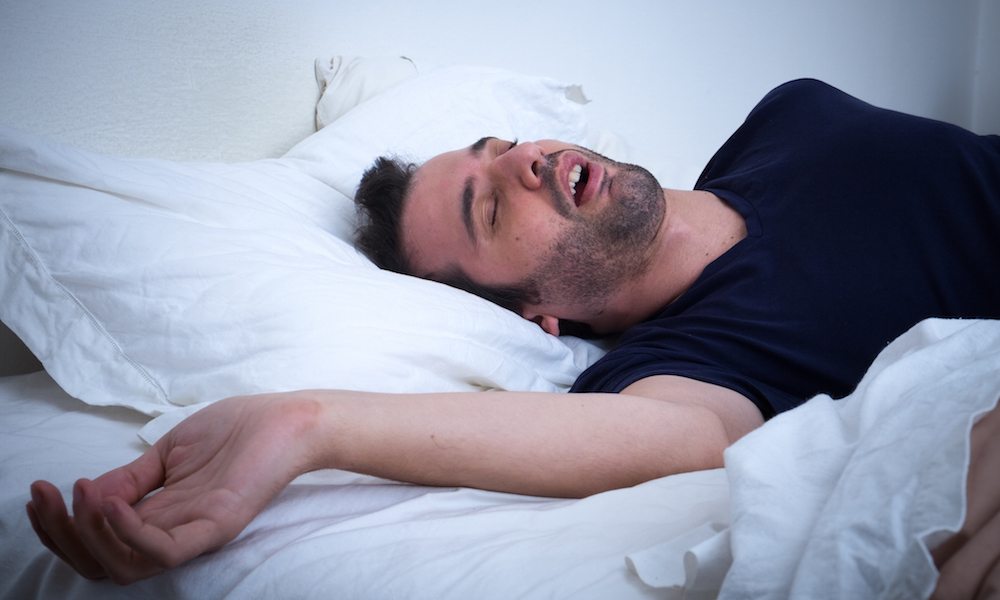Identifying the Physical Signs of Sleep Apnea

Sleep apnea impacts the lives of an estimated 10 million American adults, and in recent years rates have been increasing, largely due to the rise of obesity in the U.S. Your McKinney sleep dentist wants patients to know that most people who suffer from sleep apnea don’t know they have a problem. Usually, it takes a sleep deprived roommate or bed partner to let them know that something is wrong with the way they sleep at night.
Not only do those who suffer from sleep apnea snore loudly at night, they also stop breathing, causing them to choke and gasp for air. An apnea episode can last anywhere from a few seconds to over a minute before breathing is restored, a pattern that repeats itself dozens of times throughout the night.
By robbing apnea patients of the deep REM sleep they need, the disorder can lead to daytime drowsiness, poor memory, irritability, and an inability to concentrate.
If this list of symptoms wasn’t already troubling enough, studies have found that apnea patients also have a higher risk for high blood pressure, heart disease, depression, stroke, diabetes, glaucoma, and other serious health conditions.
Identifying the Physical Signs of Sleep Apnea
Sleep apnea episodes occur when the tongue and other soft tissues located at the back of the throat collapse, blocking the airway. When a partial blockage occurs, these tissues tend to vibrate, causing the noise associated with snoring.
In addition to obesity, patients suffering from apnea also share some of the following head and neck characteristics that impede the flow of air during sleep:
- Large tongue. Studies have determined that individuals with larger than average tongues have a higher risk of developing sleep apnea. One particular study, published in the journal Sleep, found that higher fat levels in the body not only increase tongue size but also impair the tongue’s muscle function, making it far more likely to collapse and block the airway.
- Small maxilla. A small upper jaw bone – or maxilla – is a common cause of an underbite and another potential contributing factor for apnea.
- Small mandible. A small lower jaw bone – or mandible – is a common cause of an overbite and another potential contributing factor for apnea.
- Thick neck. Patients with a neck circumference greater than 17 inches for men and 16 inches for women have a higher risk of suffering an airway collapse during sleep. Neck thickness is typically – but not always – a result of obesity.
- Deviated septum. When the middle wall in the nose is crooked, the airflow through the nasal passage may become impaired.
Treating Sleep Apnea
If you suffer from nightly snoring and poor sleep, having one of the facial conditions listed above is just another reason to consult your McKinney sleep dentist, Dr. Paul Lawrence, about your treatment options for sleep apnea.
If Dr. Lawrence diagnoses you with sleep apnea, your treatment options could include:
- Losing weight. If you are overweight, dropping between 10 to 15 pounds may help reduce the size of your tongue, neck, and other excess soft tissue that collapse to block your airway during sleep.
- Oral sleep appliance. A custom-made oral sleep appliance can help treat sleep apnea by repositioning the jaw forward while you sleep to open up your body’s airway. As an experienced McKinney sleep dentist, Dr. Lawrence can create a custom-made sleep appliance to help treat your sleep disorder comfortably.
- CPAP. A Continuous Positive Airway Pressure, or CPAP, machine is an air pump that’s attach to facial mask. By wearing the mask at night, the CPAP machine will provide a continuous flow of air that will keep the airway open so you can breathe normally while sleeping.
- Laser Snore Therapy. At SleepRight McKinney, we utilize the NightLase patented LightWalker laser technology that provides Dr. Lawrence with the ability to offer a safe, non-invasive, and patient- friendly laser treatment option that can greatly improve, and possibly eliminate, snoring.
- Surgery. If traditional treatment measures fail, there are a number of surgical methods such as reducing the tongue, enlarging the airway, or correcting a deviated septum that can help prevent nightly sleep apnea.
Don’t wait to start getting the good night’s rest you deserve. Contact SleepRight McKinney today to schedule your free sleep apnea consultation with McKinney sleep dentist Dr. Paul Lawrence!

